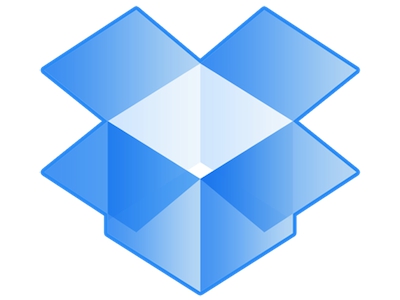Dropbox Denies It Was Recently Hacked
On Tuesday, Anton Mityagin of Dropbox updated the company blog with news that the cloud storage service has not been hacked despite recent reports. News of the supposed hack originated on Reddit where an anonymous individual claimed to have stolen credentials from 7 million accounts. This information is contained in four Pastebin files.
"Your stuff is safe," Mityagin wrote. "The usernames and passwords referenced in these articles were stolen from unrelated services, not Dropbox. Attackers then used these stolen credentials to try to log in to sites across the internet, including Dropbox. We have measures in place to detect suspicious login activity and we automatically reset passwords when it happens."
He went on to encourage Dropbox customers to use two-step verification to better protect their files. Once this service is set up, users will either receive a six-digit security number via text, or they can choose to use a third-party verification app like Google Authenticator. While this may sound like a pain, it's more secure than merely using a password.
Reports claim that the hacker released a portion of the supposed stolen Dropbox information to prove the hack is real and is accepting Bitcoin donations. More is to come, the hacker said. Meanwhile, Dropbox customers may need to change their passwords regardless if the hack is real or not.
News of the possible hack follow a recent problem with the Dropbox software. Many Dropbox users have discovered that their files were deleted thanks to the Selective Sync setting. This setting allows Dropbox users to manually select which files can be synced with devices and which files should remain in the cloud.
"We've fixed the Selective Sync issue that affected a small number of users and reached out to them to help restore their files," a spokesperson told Tom's Hardware. "Issues like this aren't acceptable at Dropbox, and we've implemented additional testing to prevent this from happening again."
Dropbox is offering a free year's worth of Dropbox Pro for those affected by the Selective Sync glitch.
Get Tom's Hardware's best news and in-depth reviews, straight to your inbox.
Follow Kevin Parrish @exfileme. Follow us @tomshardware, on Facebook and on Google+.

Kevin Parrish has over a decade of experience as a writer, editor, and product tester. His work focused on computer hardware, networking equipment, smartphones, tablets, gaming consoles, and other internet-connected devices. His work has appeared in Tom's Hardware, Tom's Guide, Maximum PC, Digital Trends, Android Authority, How-To Geek, Lifewire, and others.
-
junkeymonkey well what did you expect them to say out side the company line damage control statements??Reply -
10tacle Reason #46 why I don't store nor back up any of my data in the "cloud." Anyone who does and who does not instead use an offline home storage and backup method is asking for a breach of privacy. That includes automated mobile phone cloud storage as well. Turn that crap OFF if you know what's good for your security and privacy.Reply -
junkeymonkey now look at windows 8 and above cloud cloud cloud across the board and they know your going to just love it wonder why outlook maul is gone?? cause its not part of the cloud and that needs to be ''out there'' with ''them'' and not with youReply -
ldun I always recommend people use multiple backup platforms in case of failures of either devices and/or services. I also give them a heads up that online services are best used for non-confidential data that they "wouldn't mind" if anyone else got a hold of it.Reply -
junkeymonkey I always recommend people use multiple backup platforms in case of failures of either devices and/or services. I also give them a heads up that online services are best used for non-confidential data that they "wouldn't mind" if anyone else got a hold of it. ''Reply
well when that's being taken away your just screwed
like look at Microsoft of its not cloud based it gone this is why I do my importante e-mails still with xp and vista its stored on your drive not the cloud as 7 and above -
junkeymonkey Create an e-mail, click the photo album icon, and then select your photos. Windows Live Mail puts thumbnails of them all into a nice-looking photo album in your e-mail. But it doesn't actually send original pictures. Instead, it stores them on Windows Live Skydrive, Microsoft's free, cloud-based storage service that offers 25GB of free space. Recipients of the mail click thumbnails, and are then sent to get the original images on SkyDrive. In that way, you don't clog up people's mailboxes with large attachments.Reply
see its all with them not you with 7 and up so you wipe or destroy deleat what ever your hard drive don't worry they still got a copy of it well out of your control somewhere in the world out side of any u.s law that may protect you
-
skibo1219 Dont use Dropbox! Rice does not believe in personal privacy, which is why she is denying the hacks, it was the CIA or the NSAReply
